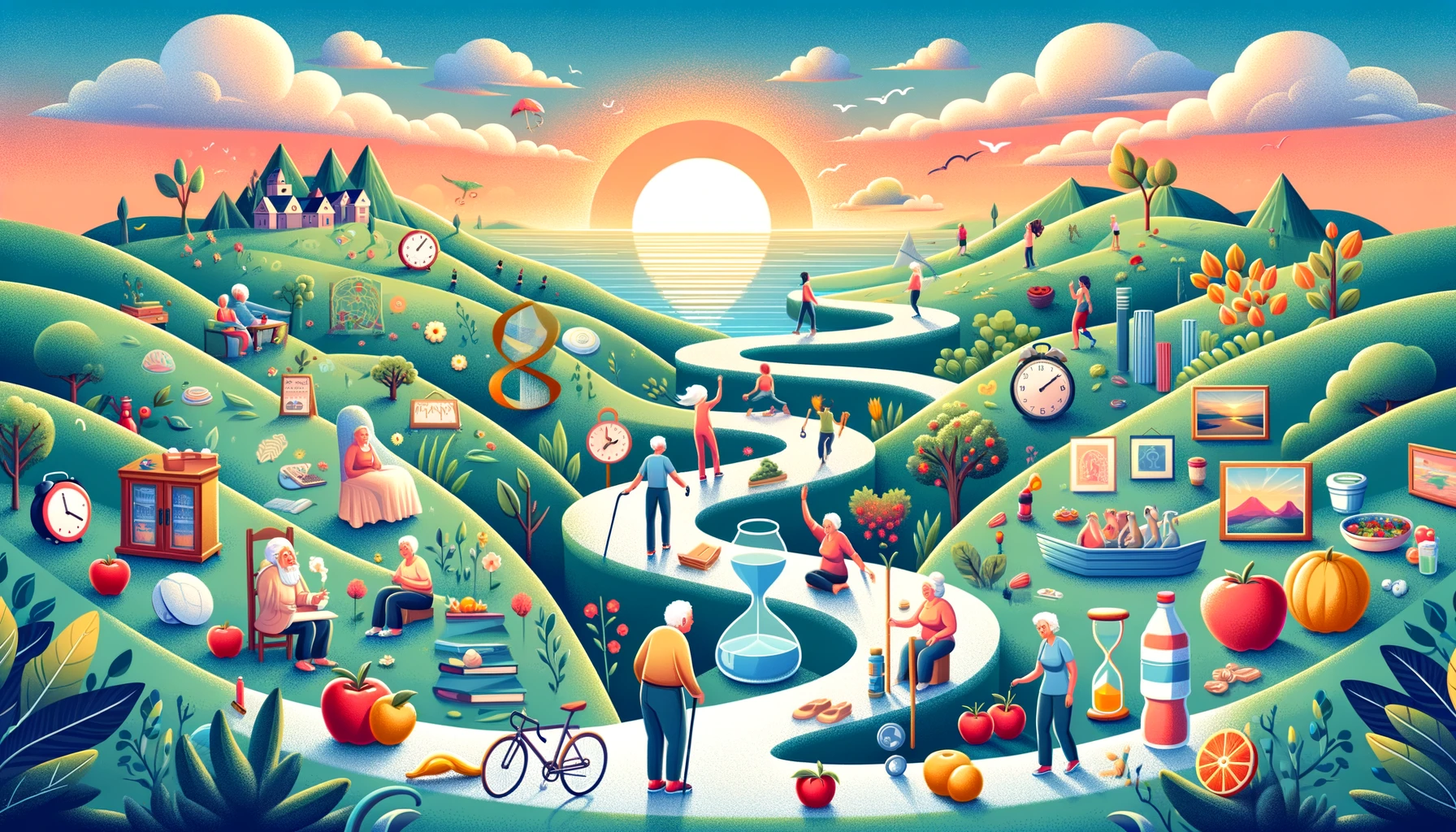The concept of longevity is intricately tied to our perception of time and how we measure our lives within its bounds. The world around us often reflects our internal state, influencing our relationship with everything, including aging, longevity, and time itself. Recently, I’ve found myself surrounded by discussions on age, aging, and longevity. These conversations, whether casual or part of more formal settings like a wellness club, highlight a growing interest in understanding and achieving a long, healthy life. This interest suggests the topic’s relevance to many, potentially warranting exploration through a multi-part series.
Understanding Time and Longevity
The Illusion of Time
The starting point in reevaluating our approach to longevity is to address our perception of time. Contrary to our traditional understanding of time as a linear, measurable entity, it may be more accurate to view time as a relative concept without intrinsic value. This perspective challenges the notion of time as a static or dynamic progression that can be quantified.
The relativity of time is a concept supported by various scientific theories, suggesting that time’s flow is influenced by factors like matter movement, speed, and the properties of different spaces. Films like “Interstellar” exemplify how time can dilate or contract based on environmental conditions, further illustrating time’s fluid nature.
Aging and Perception
There’s a correlation between how individuals perceive time in their lives and the rate at which they age. This observation suggests that our engagement with societal matrices and time can significantly affect our aging process. The more we feel bound by time, the more it impacts us, potentially accelerating aging.
Practical Steps Towards Embracing Longevity
Breaking Free from Time’s Constraints
To foster a mindset conducive to longevity, we can start by detaching from the conventional, matrix-bound perception of time. This means rejecting societal dogmas tied to age and embracing a more flexible understanding of life’s timeline. Observing life beyond the calendar can reveal numerous examples where age does not dictate one’s vitality or capabilities.
Factors Influencing Aging
Several factors contribute to the onset of aging in the body:
- Societal Programs: Accepting age-related stereotypes from society can prematurely age us.
- Matrix Engagement: Deep immersion in societal norms and time perceptions accelerates aging.
- Stress: High stress levels deplete life energy, hastening the aging process.
Life Energy and Longevity
Life energy, a vital force invested by the soul into the body, plays a crucial role in our longevity. This energy, if conserved and not drained by negative experiences or stress, can support a lifespan significantly beyond current averages, potentially up to 300 years.
Conclusion: Embracing a Youthful Spirit
To maintain youthfulness and vitality, it’s essential to shift our perspective on aging and time. This involves:
- Staying open-minded and adaptable.
- Accumulating wisdom and experience without letting them age the body prematurely.
- Growing in consciousness rather than in years.
By redefining our relationship with time and aging, we can approach life with a rejuvenated sense of purpose and vitality, paving the way for a longer, healthier existence.

